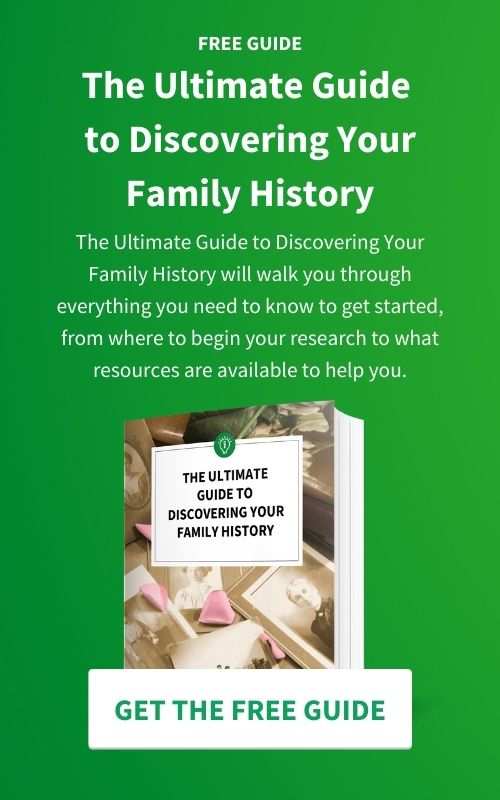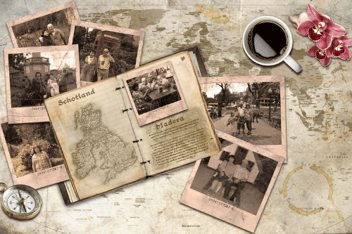Ancestry Research Books to Expand Your Knowledge
Ancestry research, or genealogy, holds significant importance for individuals and society as a whole. It offers people a profound connection to their heritage, fostering a sense of identity and belonging. Moreover, it helps preserve family history and stories, contributing to the preservation of cultural and historical traditions. Genealogy can also provide valuable medical insights, shedding light on hereditary health conditions. This growing interest in genealogy has been fueled by technological advancements, pop culture, online communities, heritage tourism, and the appeal of personalized gifts.
There is a wide range of top ancestry research books available to cater to the burgeoning interest in genealogy. These books cover various aspects of the field, including DNA testing, online research tools like Ancestry.com, and the fundamentals of genealogical research. They also delve into genetic genealogy and offer practical advice on preserving documents and family stories. Some books explore the intersection of genealogy with popular culture, as seen in PBS series adaptations, making genealogy more accessible and engaging for a diverse audience. Overall, these books provide a valuable resource for anyone looking to explore their family history and ancestry in this age of growing genealogical fascination.
Getting Started with Ancestry Research
For beginners in genealogy, it's crucial to start with books that provide a solid foundation of knowledge and basic research techniques. These books are designed to help newcomers understand the fundamental principles of genealogical research and get started on their family history journey. Here are a few recommended titles that cater to beginners:
- "The Family Tree Guide to Genealogy" by Erin Nevius and Amanda Epperson: This comprehensive guide offers a step-by-step approach to genealogical research. It covers everything from building a family tree and conducting interviews with relatives to using online databases and archives. The book also includes helpful worksheets and checklists to keep beginners organized.
- "Genealogy for Dummies" by Matthew L. Helm and April Leigh Helm: The "For Dummies" series is known for its user-friendly approach, making complex topics accessible to beginners. This genealogy guide covers the basics of research, organizing information, and using online resources. It's a great starting point for those new to genealogy.
- "The Complete Idiot's Guide to Genealogy" by Christine Rose and Kay Germain Ingalls: Similar to the "For Dummies" series, "The Complete Idiot's Guide" provides clear and straightforward explanations for beginners. This book introduces genealogical research principles, record-keeping, and strategies for finding ancestors, both in the United States and abroad.
- "The Beginner's Guide to Genealogy" by Jeri L. Weston: As the title suggests, this book is specifically designed for beginners. It covers essential genealogical concepts, such as vital records, census data, and immigration records. It also includes practical tips on organizing research and conducting effective searches.
- "Genealogy Basics In 30 Minutes" by Shannon Combs-Bennett: This concise guide is perfect for those with limited time. It provides a quick introduction to genealogical research techniques, online resources, and tips for building a family tree. It's a great starting point for beginners who want to taste genealogy before delving deeper.
These beginner-friendly books provide valuable guidance for those just starting their genealogy journey. They emphasize the importance of foundational knowledge and offer practical advice to help beginners build their family trees and discover their ancestral roots.
Advanced Techniques and Specific Topics
Here are five books that delve deeper into specialized areas of ancestry research, offering insights into DNA analysis, specific ethnicities or regions, and advanced research methodologies:
- "Genetic Genealogy: The Basics and Beyond" by Emily D. Aulicino: This book is an excellent resource for individuals interested in genetic genealogy, which involves using DNA testing to uncover ancestral connections. It covers the fundamentals of DNA testing, interpretation of results, and advanced techniques for using DNA data to identify relatives and trace ancestral lines. It's valuable for those seeking to explore their heritage through genetic testing in depth.
- "Tracing Your Ancestors' Lives: A Guide to Social History for Family Historians" by Barbara J. Starmans: For researchers looking to understand their ancestors within the context of specific historical eras or regions, this book delves into social history. It explores various aspects of daily life, from work and education to leisure and migration. By contextualizing ancestors within their social and historical environments, genealogists can gain a deeper understanding of their family's past.
- "The Family Tree Irish Genealogy Guide" by Claire Santry: This specialized book is a must-have for individuals with Irish ancestry. Irish genealogy can be particularly challenging due to the loss of many records, but this guide offers strategies for overcoming those obstacles. It provides insights into Irish history, naming patterns, and sources specific to Ireland, making it a valuable resource for those researching their Irish roots.
- "Black Roots: A Beginner's Guide to Tracing the African American Family Tree" by Tony Burroughs: This book caters to individuals researching African American ancestry, a group often faced with unique challenges in genealogy due to the history of slavery. It offers specialized guidance on overcoming obstacles, tracing enslaved ancestors, and utilizing specific records and resources relevant to African-American genealogy.
- "Advanced Genetic Genealogy: Techniques and Case Studies" by Debbie Parker Wayne: For those who have already delved into genetic genealogy and are looking to take their skills to the next level, this book offers advanced techniques and case studies. It explores complex DNA analysis methods, such as triangulation and chromosome mapping, and provides real-world examples to illustrate how these techniques can solve genealogical mysteries.
These specialized books provide in-depth knowledge and guidance for genealogists who want to explore particular aspects of their ancestry, whether it's through advanced DNA analysis, the investigation of specific ethnic backgrounds, or the understanding of unique research challenges posed by different regions and historical contexts. They equip researchers with the tools and insights needed to pursue their genealogical interests in a more specialized manner.
Personal Family History and Storytelling
Storytelling is a way for families to share their ancestry and personal history. We have all heard these stories but we forget to document them. The following five books will help guide you in preserving these for generations to come.
- "Writing Family History Made Very Easy: A Beginner's Guide" by Noeline Kyle: This book is an excellent starting point for those looking to turn their genealogical research into engaging family histories. It provides practical advice on writing techniques, structuring narratives, and incorporating family stories and memories to create a captivating family history book.
- "How to Write Your Personal or Family History: If You Don't Do It, Who Will?" by Katie Funk Wiebe: This book emphasizes the importance of preserving personal and family histories. It offers guidance on organizing research materials, conducting interviews, and crafting compelling narratives that bring family stories to life.
- "Producing a Quality Family History" by Patricia Law Hatcher: For those who are serious about producing a high-quality family history book, this guide offers comprehensive advice on research, writing, and publishing. It covers topics like source citations, narrative structure, and creating an attractive layout for your family history.
- "The Genealogist's Guide to Writing and Publishing" by BCG, et al.: Published by the Board for Certification of Genealogists, this book focuses on turning genealogical research into well-written and professionally presented family histories. It covers a wide range of topics, including writing style, citation practices, and publishing options.
- "Writing Your Family History: A Guide for Genealogists" by George G. Morgan and Drew Smith: This book combines genealogical research with the art of storytelling. It provides practical tips on writing techniques, organizing research findings, and weaving family stories into a cohesive narrative that engages readers.
These books are valuable resources for genealogists and family historians who want to go beyond the research aspect and transform their findings into compelling family histories. They offer guidance on writing, storytelling, and publishing, helping individuals create lasting records of their family's heritage for future generations.
Online Ancestry Research in the Digital Age
The digital age is creating a new realm of research for genealogical information from your own home. Here are five books that explore the use of technology and online resources to advance genealogical research, providing guidance on navigating databases, websites, and social media communities:
- "The Genealogist's Google Toolbox" by Lisa Louise Cooke: This book focuses on leveraging the power of Google and its various tools to enhance genealogical research. It covers advanced search techniques, using Google Earth for mapping ancestral locations, and utilizing other Google services like Google Books and Google Scholar to find historical records and information.
- "The Online Genealogy Handbook" by Brad M. Stone: This comprehensive guide delves into various online resources and databases that are essential for genealogical research. It covers everything from popular genealogy websites to specialized databases, providing tips and strategies for effective online searching.
- "Mastering Online Genealogy" by W. Daniel Quillen: Geared towards both beginners and experienced genealogists, this book offers a practical approach to using online resources. It provides guidance on using genealogy websites, databases, and social media platforms to connect with others researching similar family lines.
- "Social Media for Family Historians" by Carole Riley: As social media has become a powerful tool for genealogists to collaborate and share findings, this book explores how to harness platforms like Facebook, Twitter, and Pinterest for genealogical purposes. It includes tips on joining genealogy groups, using hashtags, and sharing family history stories effectively.
- "The Family Tree Historical Newspapers Guide" by James M. Beidler: Newspapers are a rich source of genealogical information, and this book focuses on using online newspaper databases and digitized archives. It provides strategies for locating and interpreting historical newspaper articles, obituaries, and other valuable records online.
These books cater to genealogists and family historians who want to leverage technology and online resources to enhance their research capabilities. They offer practical advice on using search engines, genealogy websites, social media, and digitized records effectively, helping researchers harness the power of the internet to uncover their family's history.
Ethical Considerations and Privacy Issues
Books that address the ethical implications of genealogy research and offer guidance on navigating privacy complexities during the research process are crucial for genealogists and family historians. These books help individuals conduct their research responsibly while respecting the privacy and sensitivities of living family members. Here are a few books that delve into this important aspect of genealogy:
- "Genealogy and the Law: A Guide to Legal Sources for the Family Historian" by Kay Haviland Freilich, Ph.D., JD: This book explores the legal aspects of genealogical research, including issues related to privacy, access to records, and copyright. It provides guidance on how to navigate legal complexities while conducting genealogy research and emphasizes the importance of ethical considerations.
- "Ethical Dilemmas in Genealogy" by Dr. Thomas W. Jones, CG, CGL, FASG, FUGA, FNGS: Dr. Thomas W. Jones addresses the ethical challenges genealogists may encounter. This book discusses issues such as handling sensitive information, respecting the wishes of living family members, and conducting ethical research that maintains the integrity of the field.
- "Genealogy Standards" by Board for Certification of Genealogists: While not solely focused on ethics, this book provides comprehensive guidelines for genealogical research, including ethical standards. It covers topics such as documenting sources, respecting privacy, and presenting research findings responsibly.
- "The Researcher's Guide to American Genealogy" by Val D. Greenwood: This genealogy classic includes a section on ethics and genealogical standards. It emphasizes the importance of ethical considerations, particularly when dealing with sensitive or private information about living individuals.
- "Genetics and Genealogy" by Colleen Fitzpatrick and Andrew Yeiser: As genetic genealogy becomes more prevalent, this book discusses the ethical considerations related to DNA testing and genetic information. It explores issues of consent, privacy, and the responsible use of DNA data in genealogical research.
These books provide valuable insights into the ethical dimensions of genealogy research. They guide researchers on how to approach sensitive information, engage with living family members, and navigate legal and privacy issues responsibly, ensuring that genealogy research is conducted ethically and with respect for all involved parties.- Introduce books that discuss the ethical implications of genealogy research and provide guidance on navigating the complexities of privacy during the research process.
Notable Ancestry Research Books by Professional Genealogists
Books authored by well-regarded genealogists that blend their expertise with personal anecdotes and experiences in the field provide valuable insights and inspiration to fellow researchers. These books not only offer practical advice but also share the author's passion and love for genealogy. Here are a few such books:
- "Evidence Explained: Citing History Sources from Artifacts to Cyberspace" by Elizabeth Shown Mills: Elizabeth Shown Mills is a highly respected genealogist known for her meticulous research standards. In "Evidence Explained," she combines her expertise in genealogical research with anecdotes and case studies to illustrate the importance of citing sources correctly. This book is considered a must-have reference for anyone serious about genealogy.
- "The Researcher's Guide to American Genealogy" by Val D. Greenwood: Val D. Greenwood, an experienced genealogist, shares his wealth of knowledge and personal anecdotes in this comprehensive guide. He covers various aspects of American genealogy, including methodology and sources, offering practical advice and relatable stories from his own research journeys.
- "Professional Genealogy: A Manual for Researchers, Writers, Editors, Lecturers, and Librarians" edited by Elizabeth Shown Mills: In this collaborative work, Elizabeth Shown Mills and other genealogy experts provide insights into the professional aspects of genealogical research. They share personal stories and experiences to help aspiring genealogists understand the challenges and rewards of the field.
- "Mastering Genealogical Proof" by Thomas W. Jones: Dr. Thomas W. Jones, a respected figure in genealogy, combines his expertise with personal anecdotes in this book. He guides readers through developing sound genealogical arguments, drawing on his extensive experience as a researcher and educator.
- "Family History for the Older and Wiser" by Jerry Ilott: While not written by a well-known genealogist, this book offers a unique perspective from a retiree who took up genealogy as a hobby. Jerry Ilott shares his own experiences and anecdotes, making genealogy accessible and relatable to older individuals who may be embarking on their family history journey later in life.
These books authored by experienced genealogists not only provide valuable research guidance but also offer a personal touch through anecdotes and stories from their own journeys in the field. They serve as both educational resources and sources of inspiration for genealogists at all levels of expertise.
The featured ancestry research books provide a wide range of valuable resources for genealogists and family historians, catering to various interests and expertise levels. These books emphasize the importance of continuous learning in genealogy, acknowledging that the field is ever-evolving, with new technologies, methodologies, and resources constantly emerging. They encourage readers to embrace lifelong learning as an essential aspect of successful genealogical research.
Whether you're a beginner seeking to build a solid foundation in genealogy, an intermediate researcher looking to specialize in DNA analysis or explore specific ethnicities, or an experienced genealogist aiming to refine your writing and publishing skills, there's a book on the list to suit your needs. Additionally, for those concerned about the ethical implications and privacy concerns of genealogy, there are books that provide guidance on conducting research responsibly and respectfully.
Continuing to learn and grow in genealogy is not only intellectually rewarding but also allows you to better connect with your roots, preserve family histories, and make new discoveries about your ancestors. So, consider choosing a book or two from this diverse list to expand your knowledge and enhance your genealogical skills. Whether you're just starting or have years of experience, there's always more to discover in the world of genealogy, and these books can be your trusted guides on that journey.

Article by Carol Walsh
Carol Walsh is the CEO of Creative Roots, a professional genealogy company. She has a passion for preserving family history and storytelling. Carol's research methodology centers around fact-finding and publishing in a format that readers can use to preserve the stories. Her ultimate goal is to help families connect with their past and each other.





